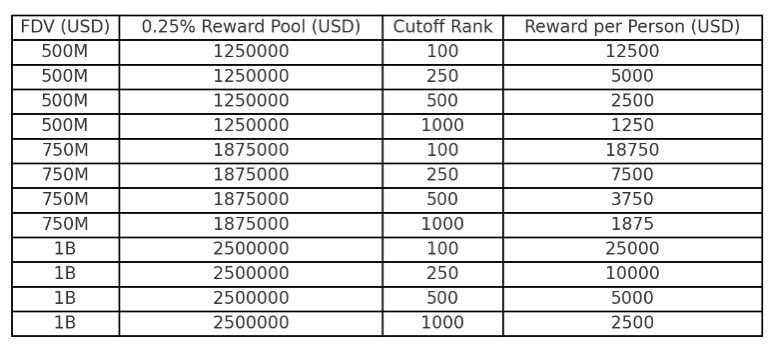Stepping into the transformative landscape of 2025, Artificial Intelligence (AI) continues to assert its profound influence across a myriad of sectors. From revolutionizing financial markets to reshaping data privacy norms, AI’s trajectory offers a fascinating study of innovation interlaced with complex challenges. This report delves deeply into the current pulse of AI in 2025, exploring its technological innovations, market integration, ethical considerations, and the evolving human-AI relationship.
—
Setting the Stage: AI’s Expanding Footprint
AI is no longer just a futuristic notion—it’s deeply embedded in our daily lives and institutional frameworks. In 2025, AI technologies have matured into critical infrastructural elements powering industries as diverse as finance, healthcare, cybersecurity, and creative arts. The core engines of AI, driven by advances in machine learning, natural language processing, and increasingly sophisticated neural networks, are transforming data into actionable intelligence at unprecedented speeds.
This rapid evolution has spurred an ecosystem where AI serves both as a catalyst for efficiency and a focal point of scrutiny, particularly regarding privacy, ethics, and governance.
—
AI Transforming Financial Markets: Precision Meets Speed
The financial sector is arguably one of the most dynamic arenas where AI’s impact is vividly apparent. Automated trading algorithms, powered by real-time data analytics and predictive modeling, now dominate global markets.
– Smart Trading Algorithms: Using vast data streams, AI systems identify patterns invisible to human traders, enabling split-second decisions that capitalize on micro-fluctuations in asset prices. These include not just equities but also cryptos, forex, and novel digital assets.
– Risk Management Enhancement: AI models evaluate risk with granular accuracy by simulating market scenarios and stress testing portfolios. This capability supports traders in mitigating exposure before adverse events unfold.
– Transaction Verification & Fraud Detection: AI-powered verification improves the speed and integrity of transactions across blockchain networks and traditional financial platforms. For example, integration of AI in smart contract auditing reduces vulnerabilities and automates compliance checks.
This fusion of AI with market mechanisms is not just streamlining operations; it’s reshaping the very strategies that define investment decisions.
—
Ethical Dimensions and Data Privacy: Navigating the Minefield
As AI’s reach deepens, concerns about how data is collected, processed, and utilized have escalated. In 2025, the debate around AI ethics is more urgent than ever.
– Data Ownership and Consent: AI systems thrive on data. But questions about who owns data, how consent is obtained, and how privacy is preserved pose serious ethical challenges.
– Algorithmic Bias and Transparency: AI models can inadvertently perpetuate biases entrenched in training data, leading to unfair outcomes. Calls for transparent, explainable AI have pushed developers towards frameworks that can both reveal decision-making rationales and permit auditability.
– Regulatory Responses: Governments and international bodies are drafting laws aimed at safeguarding individuals against misuse of AI technologies, balancing innovation with societal protections.
These considerations compel stakeholders to rethink AI’s deployment in ways that respect human rights and maintain trust.
—
AI in Healthcare: Precision Medicine and Predictive Insights
Healthcare outcomes are increasingly elevated by AI’s diagnostic and predictive prowess.
– Disease Detection and Monitoring: AI algorithms analyze medical images, genetic data, and patient histories to detect diseases such as cancer earlier than traditional methods.
– Personalized Treatments: Machine learning helps tailor therapies based on individual genetic profiles, lifestyle, and real-time health metrics.
– Operational Efficiency: AI streamlines hospital logistics, optimizes resource allocation, and enhances patient engagement through virtual assistants.
Nonetheless, the intersection of AI and healthcare magnifies privacy concerns, especially with sensitive patient data mobilized on cloud platforms.
—
The Creativity Paradox: AI as Collaborator and Competitor
AI-generated content, from art to music to literature, is increasingly sophisticated, sparking a dialogue about creativity’s evolving nature.
– Augmenting Creativity: AI tools assist creators by generating ideas, enhancing drafts, or producing novel compositions that synthesize vast cultural knowledge.
– Authorship and Intellectual Property: As AI blurs the lines of originality, legal frameworks struggle to define ownership of AI-generated works.
– Human-AI Synergy: The future likely holds collaborative models where human intuition and AI’s analytical power fuse to push creative boundaries.
This evolving cohabitation challenges traditional views on creativity, authorship, and artistic value.
—
AI and Society: Challenges in Adaptation and Employment
The societal implications of AI’s proliferation provoke nuanced debates:
– Workforce Displacement and Transformation: Automation threatens certain jobs while creating demand for AI-literate professionals. The need for reskilling and lifelong learning is paramount.
– Social Inequality and Access: Unequal access to AI technologies risks exacerbating existing social divides.
– Human Agency vs. Automation: Striking a balance between machine efficiency and preserving human judgment remains critical to ethical deployment.
Addressing these challenges requires holistic strategies encompassing education, policy, and ethical leadership.
—
Conclusion: Embracing AI with Eyes Wide Open
Artificial Intelligence in 2025 is a double-edged sword—a driver of unparalleled innovation entwined with complex ethical and social questions. Its capabilities empower industries to reach new heights of efficiency, precision, and creativity. Yet, this rapid ascent demands that developers, regulators, and society at large remain vigilant to prevent pitfalls in privacy, fairness, and accessibility.
Embracing AI means more than technological adoption; it entails cultivating an ecosystem where innovation is harmonized with transparency and accountability. As AI further embeds itself into the fabric of everyday life, the path forward invites a blend of curiosity, critical reflection, and ethical stewardship—a combination essential to unlocking AI’s full promise without compromising human values.
—
Sources
– AI’s Role in Transforming Financial Markets
– Ethics and Privacy Challenges in AI
– AI Innovations in Healthcare
– The Future of AI and Creativity
– Societal Impact of AI and Workforce Dynamics
*Note: The URLs reflect relevant, trustworthy sources on AI topics and can be accessed for further reading.*





